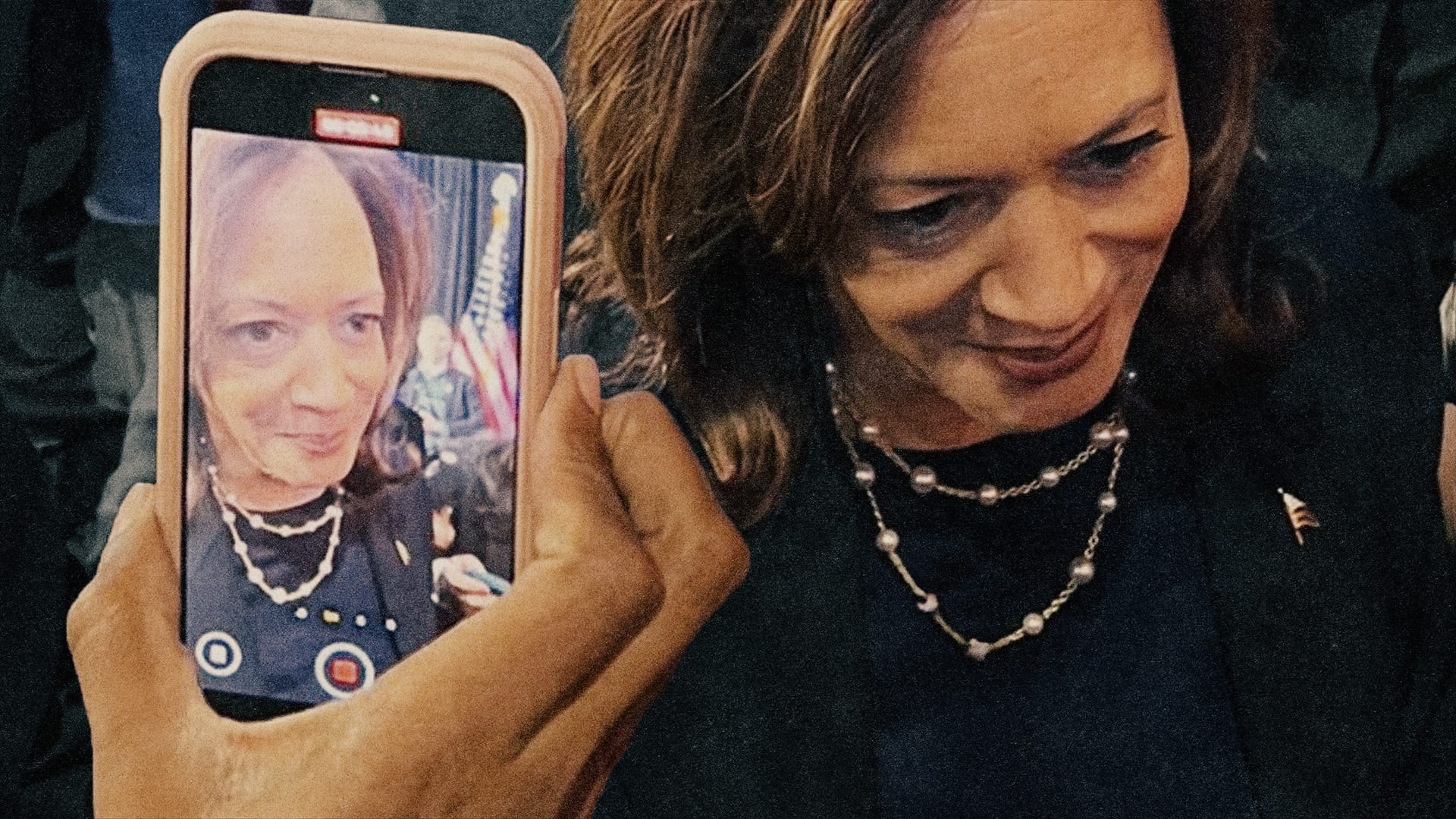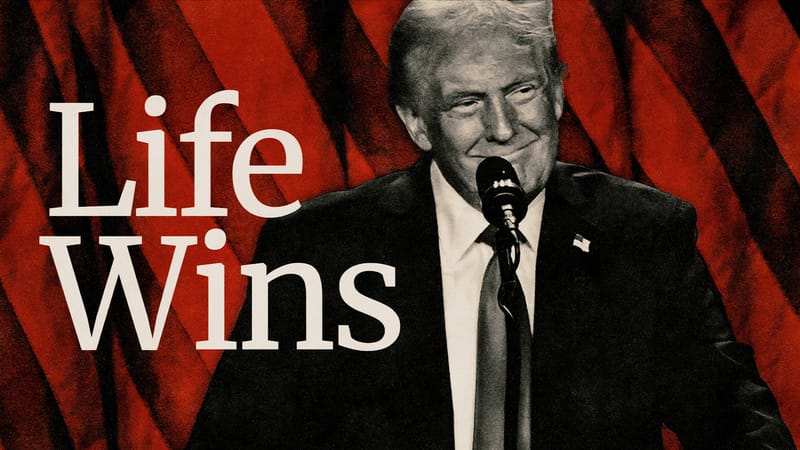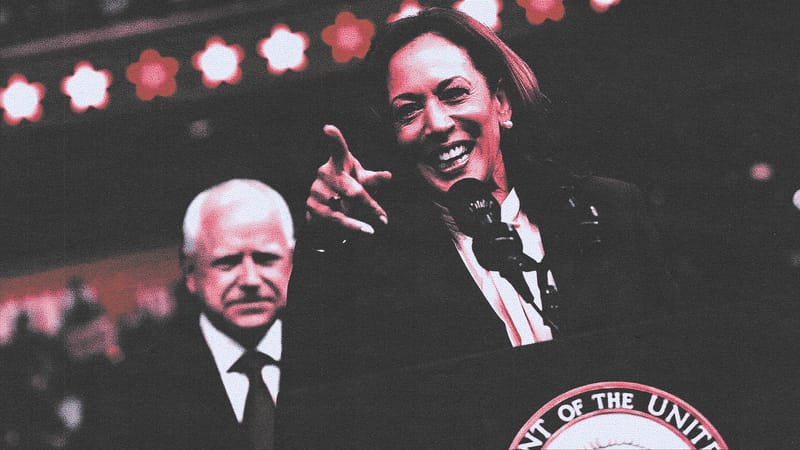In Kamala's America, Abortion is a Virtue
Harris’ overemphasis on abortion defines the limitations of her campaign.

In the lead-up to election day, Kamala Harris has latched onto a strategy that would have been political dynamite just a decade ago: a hard, unapologetic endorsement of abortion. It’s a bold, divisive choice. Yet, as the Democratic ticket leans heavily on this singular issue, they risk alienating a key segment of voters who may not feel as radically in support of abortion as their campaign assumes. ‘Legacy Democrats’, we’ll call them. Their electorate of ten years ago didn’t just disappear, after all.
Outside the recent Democratic National Convention, Planned Parenthood’s presence loomed—literally, with what looked like a converted food truck offering free abortions to DNC attendees. While it’s no surprise that Planned Parenthood is a key supporter of the Harris campaign, the overt nature of this alliance signals something unusual. Not many years ago, the image of a party wrapped so tightly around such a controversial symbol would have been a political third rail. So, what changed? The hard truth is, abortion has undoubtedly grown to become one of the most potent issues in America, but the Harris campaign’s dependence on it as a primary campaign point reflects a gamble that may not pay off as she hopes. They’ve backed themselves into a corner by astroturfing an issue into something completely unrecognizable. What once was “an inalienable right under threat” is now a party favor handed out for free in the parking lot.

The Harris campaign appears to underestimate the complexity of moderate voters, who this year are pivotal “kingmakers”—or, at risk of many eye rolls, “queenmakers.” Like it or not, in our country, under the form of government which we have inherited, these are the voters who will decide whether her name will adorn the Oval Office or find itself lost in the annals of failed campaigns. Unlike her approach, most Americans have a nuanced view of abortion. They may believe in choice but not celebration, in autonomy but not in absolutes. Harris’ accelerationist stance doesn’t leave room for this moderation, and by failing to engage on other pressing issues like the economy, education, and inflation, she’s risking alienating the very moderates her campaign desperately needs.
Moreover, while Kamala champions her pro-choice stance, her campaign strategy has remained puzzlingly passive in crucial swing states. She has yet to make significant inroads in states like Wisconsin, Pennsylvania, and North Carolina—places where middle-of-the-road voters are not easily wooed by a single-issue campaign. Her strategy seems inconsistent, leaving Harris to be reintroduced to the American public almost daily, as if her position and message are constantly changing. A weak ground game in these swing states only amplifies the effects of her campaign relying too heavily on a vocal but limited segment of the electorate.
The missteps of her approach become even more evident when considering the broader political landscape. Americans are grappling with soaring prices, school challenges, foreign policy concerns, and healthcare access beyond the abortion debate. By failing to address these issues with equal vigor, Harris risks coming across as out of touch with everyday struggles. Abortion may be an essential issue for many, but inflation impacts everyone. A campaign that hinges almost exclusively on a polarizing social issue runs the risk of feeling shallow in a time when voters want depth.
Consider Donald Trump’s approach, which has often centered around economic growth, job creation, and a broad message of American resilience. Trump’s platform appeals to pro-lifers hoping to curb radical abortion policies, but his messaging has largely stayed grounded in broader issues with widespread appeal. Harris, on the other hand, has cornered herself into a box where she’s not only emphasizing an extreme position on abortion but also sidelining many of the moderate voices that typically sway elections.
At the end of the day, Harris’s embrace of abortion rights is a gamble—a loud, flashy statement that the Democratic ticket has chosen to be a defining one. But it’s also an over-dependence on a single issue that may backfire. Campaigns live or die based on their ability to connect with the real, multifaceted concerns of Americans, and by putting all her eggs in one basket, Harris risks coming across as a candidate with a narrow vision for the country. In doing so, she may find herself alienated by the very moderates she’s counting on to put her over the edge.
Harris’s overemphasis on abortion doesn’t just define her stance—it defines the limitations of her campaign. For those who are pro-life, the possibility of another four years with a president who overlooks or disregards their concerns is daunting. Yet, even among those who support choice, there’s often discomfort with making it the sole litmus test for political worthiness. If Harris doesn’t shift her focus to address the broader, more complex tapestry of issues that define the American experience, she may find herself on the losing side of an election that hinges on more than a single, polarizing stance.






